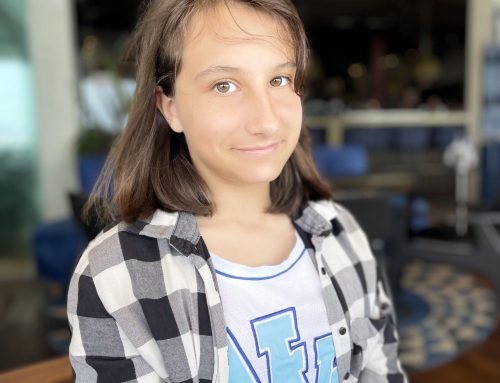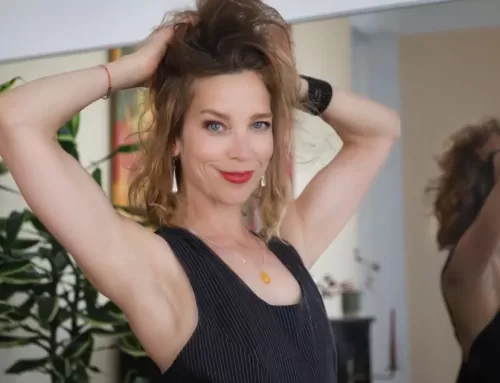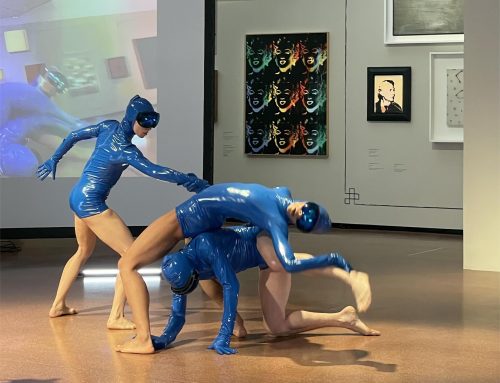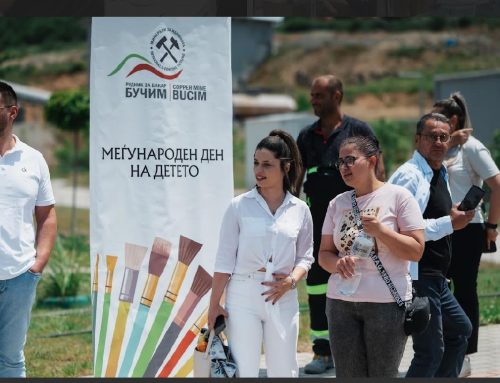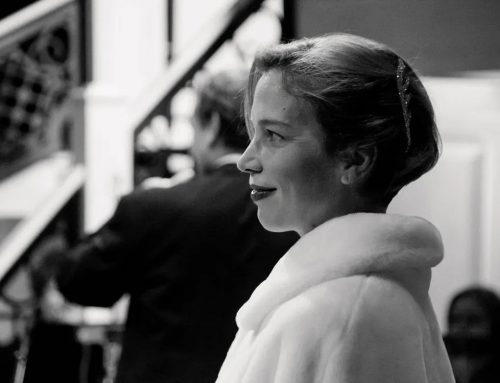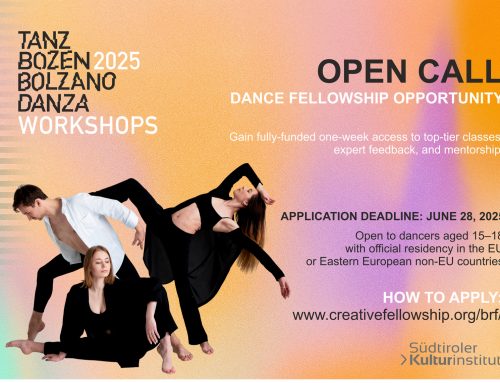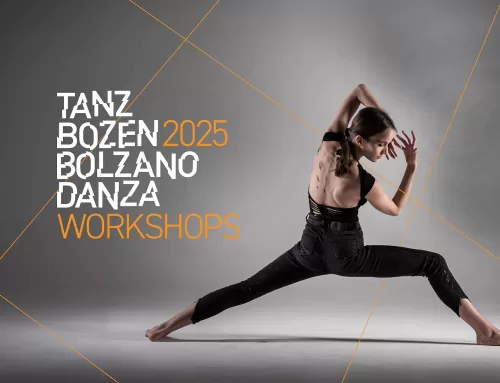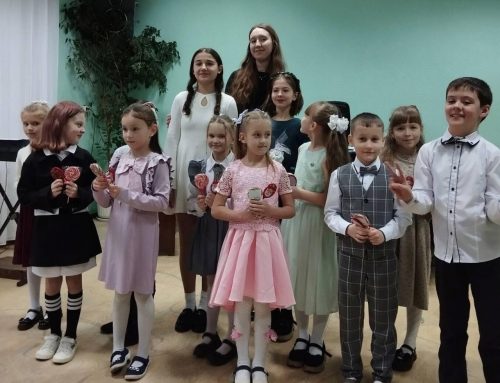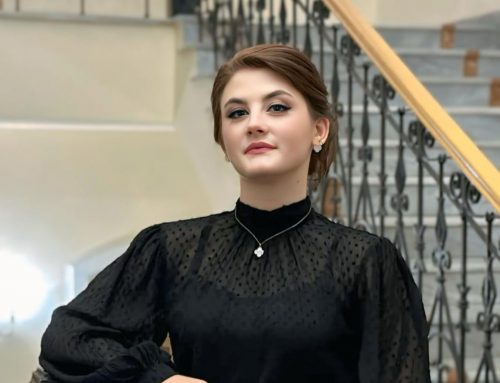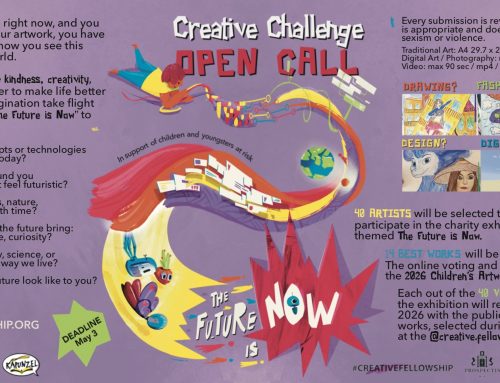Iurii Samoilov is the Ukrainian baritone with an international career. An experienced singer, who performed principal roles at Europe’s most respected houses, he first met with Creative Fellows in April this year whilst making his debut at the Metropolitan Opera in New York. In the last days of the Opera Camp in Salzburg we sat down with Iurii to have a chat about the value of participating in international workshops and programs like ours and obstacles that might keep young people from developing their artistic careers.
What brought you to Salzburg this year?
This year I am in Salzburg as a part of the Il Trittico production conducted by the great Franz Welser Möst and directed by outstanding Christof Loy. Lots of friends are in the cast and I am really enjoying this project.
This is not the first time you have been here. What role has the Salzburg Festival played in your life?
The first time I was here in Salzburg was 9 years ago in 2013 when I was part of the Young Singers Project. Since then I came back in 2016 for Don Giovanni and I feel Salzburg has been a very important part of my career, and my life. It is a very special place. You meet a lot of great musicians, a lot of famous musicians. I think everybody should come here at least once, even if as an observer.
How did you get into this young performers program and what benefits did you get out of participating in this project?
I auditioned for the Young Singers Project back in 2012 and as a result I was invited to attend. I met a lot of important opera world people, we did masterclasses, concerts, and productions on stage. This was the first time I sang on the same stage with Jonas Kaufmann and Thomas Hampson. I was doing a very small role and was basically sitting there with my eyes wide-open on the stage and probably my mouth open as well, because being with such great singers on the same stage was unbelievable. The benefits were countless. I gained a lot of inspiration, lots of knowledge about styles of music, and language. Basically, just being there was a huge learning experience for me.
Did it help you in developing your career?
Absolutely! I think every time you go somewhere, Salzburg in particular, you meet people. You meet people from the business, you meet different musicians, you exchange opinions, and share your knowledge. This place, as I said, is full of professionals you can share your ideas with.
How did a young man from Odessa become one of the most sought after baritones in the world? How did it start? Are your parents involved in opera in any way?
Neither my parents, nor my family are involved in music at all. My grandfather used to sing in the choir. He was a soloist back in the Soviet Union. I sang a lot as a kid: popular music, folk, jazz. Later I entered the Musical Academy in Kyiv. I was 16 years old! Since then I have had one focus: I want to sing, I want to develop, I want to grow. I used every opportunity and every possibility that came my way.
What qualities and knowledge does a young talent need to have in order to successfully develop within their own country and also abroad?
What qualities? That’s a good question. As many qualities as you can imagine. I mean everything that you experience in your life might at some point be useful on stage. Even if you’re scared, don’t let it stop you. I’m not saying don’t be scared, because we are all scared. Be scared, but still reach for the stars. I still get scared very often and it’s absolutely fine. It’s a process of working on yourself, of embracing the fear and conquering it.
In regards to the qualities – language is very important, as is general knowledge and your own personal development. Read, live your life, be awake, be present, open your eyes and experience the world around you! Allow yourself to make mistakes and try to learn from them. Not only technique is important– vocal or acting – but also your mind and heart. It is important to always bring yourself and your story on stage.
You know, everything that surrounds us, everything we feel and experience in life can be brought on stage and be helpful in your interpretation. You can’t have a rich life on stage, if you don’t have a rich one off stage.
What difficulties and fears did you encounter during your studies and how did you overcome them? Have you always had your parents’ support? Who guides you today? Do you have mentors?
There were a lot of difficulties and fears. When I started, I was always the youngest person in the group. And my biggest fear was that I was not good enough, not talented enough, especially when my classmates said things to me, like, “Ah, you don’t know how to sing this music?” “You don’t sing Verdi yet?” and “You don’t sing loud enough.” I mean during your career, during your development there will be plenty of people who will tell you that you aren’t good enough. They can say whatever they want. The point is that you have people who are on your side – your parents, your teachers, your coaches, people whom you trust and people who love you and support you. We tend not to listen to the people who are close to us and who wish us well, but to all the people around us who aren’t important. You know, it’s the same about critiques, especially in the opera world. They tend to write whatever they want. Each critique is just one single opinion. It doesn’t mean that you are this or that, or whatever they are trying to say you are. Nobody can put a stamp on you. Be whatever you want and know that only you decide who you are.
We see a lot of cases where parents have the attitude that their child should “stop making this noise you call singing/music and get a job as an accountant”. What advice would you give to those young people whose parents do not see a future career from pursuing the arts?
I was lucky enough that my parents encouraged me to pursue singing when I was 10 years old and were on my side the whole way. My sister was the one who used to tell me that I can’t earn a living with singing and I should go to some economics university in order to get a real job. I indeed entered the economics university at the same time as the musical academy, but I dropped out. First of all, it was too intense to do both at the same time and secondly, my parents couldn’t afford paying for both. In Ukraine you can only have one free education and I chose music.
It’s very important that you have people on your side who are supporting your ideas and dreams. Even if it’s not your family, you can find a teacher or friends who support you and as I said you are the only person who is in charge of what you do and you should search for strength and support from within and just continue working. Only people who are brave enough to, despite obstacles, pursue their dreams, will arrive somewhere and achieve results.
In one of your interviews you said, “I see my mission as helping young opera singers in their development and introducing classical music to young people who are not at all involved with music.” Besides these kinds of meetings we are having now, what else do you do to popularize classical music among young people?
One of the most important things I have started doing during the pandemic is to increase my online presence, talking to people, especially younger ones who are currently studying, and telling them about how the opera business actually functions. Back when I was studying, there wasn’t anybody to tell us about these things, there was no information available. If you are from Eastern Europe or South America or somewhere far away from the US or Central Europe the information is not always easily accessible.
Later I organized a lot of master classes in different cities in Ukraine talking about interpretation, language, and music styles.
But talking about non-musical people, spreading awareness about this profession is the key. Making it more accessible and approachable, and more interesting to someone who is not from this niche profession. We should stop behaving as if the opera world is an exclusive society, and welcome all people, and ease up on the rules, so that new potential opera lovers and young people feel more included and not scared that they will be judged for not understanding the performance, or knowing when to clap.
As artists we should show the audience that the people on stage are just like them and have similar lives. I do this on Instagram. I share my life style and traveling experiences, not only music. I try to make a connection with young audiences.
How would one go about trying to find a scholarship/program in other countries? And what should one expect when going abroad to study?
Nowadays we have an amazing thing called the internet. :-) And there are plenty of opportunities listed there. Take the YAP tracker https://www.yaptracker.com for example. There you can find information about auditions for young artist programs, opera studios, competitions, and master classes. I understand as a young singer it’s sometimes tricky to attend these programs as very often the accommodation or travel costs are at your own expense and you need a particular budget. I used to work in a restaurant as a waiter to get some extra money to afford these trips. And wherever you go, try to meet people. Don’t be shy. Approach people, artists, managers, teachers, and coaches. Talk to them, ask for their advice. There is nothing wrong with this, people are often and mostly very open and willing to help younger generations.
While auditioning it’s absolutely normal that you will find many closed doors. My rough calculation, based on my personal experience, I would say only 5 to 10 out of 100 times you will have a positive result. At least it will be like this in the beginning, unless you are natural talent, which was not really my case. I obviously had talent but it was a lot of work. So at the beginning there were many opportunities that didn’t work out. But if you keep knocking on doors and fighting for what you love, you will eventually find a way in and from there you will go to the next room and then the next one. And you will acquire more and more knowledge and get to know more and more people and I promise, you will develop in a marvelous way and you will enjoy the trip as well.
Our program scholars, young people from Ukraine, North Macedonia, and Guatemala are currently participating in their first opera ever which is Katya Kabanova. What is your advice in terms of getting the most out of the experience?
Well, first of all I wish them great success in this experience. Embrace it, try to reach your limits and beyond your limits. When people tell you, for example, you need to sing and stand on your hands, try to do it. If people tell you to run around and sing, give it a try. It might not work the first time, it might never work, and it might not even be a good idea, but at least by trying you can work on reducing your fears and get to know your limits. For every person it’s important to know their borders and explore ways to get past those borders in order to create something special, something out of this world. Embrace this experience, trust the team who is with you along the way. Enjoy the summer in Salzburg, the nature, and the special atmosphere of music and art. It is exceptional!


